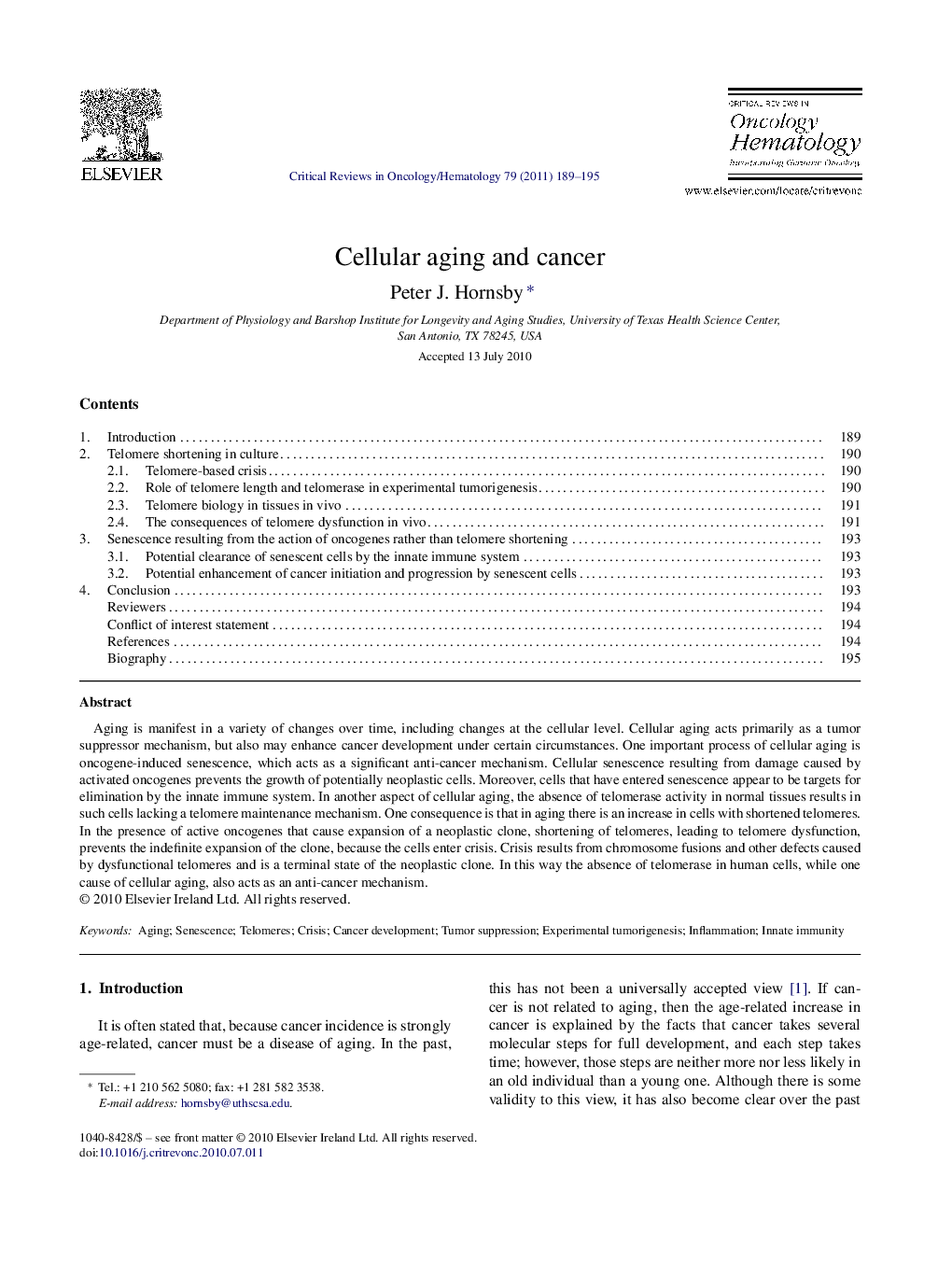| Article ID | Journal | Published Year | Pages | File Type |
|---|---|---|---|---|
| 3329330 | Critical Reviews in Oncology/Hematology | 2011 | 7 Pages |
Aging is manifest in a variety of changes over time, including changes at the cellular level. Cellular aging acts primarily as a tumor suppressor mechanism, but also may enhance cancer development under certain circumstances. One important process of cellular aging is oncogene-induced senescence, which acts as a significant anti-cancer mechanism. Cellular senescence resulting from damage caused by activated oncogenes prevents the growth of potentially neoplastic cells. Moreover, cells that have entered senescence appear to be targets for elimination by the innate immune system. In another aspect of cellular aging, the absence of telomerase activity in normal tissues results in such cells lacking a telomere maintenance mechanism. One consequence is that in aging there is an increase in cells with shortened telomeres. In the presence of active oncogenes that cause expansion of a neoplastic clone, shortening of telomeres, leading to telomere dysfunction, prevents the indefinite expansion of the clone, because the cells enter crisis. Crisis results from chromosome fusions and other defects caused by dysfunctional telomeres and is a terminal state of the neoplastic clone. In this way the absence of telomerase in human cells, while one cause of cellular aging, also acts as an anti-cancer mechanism.
